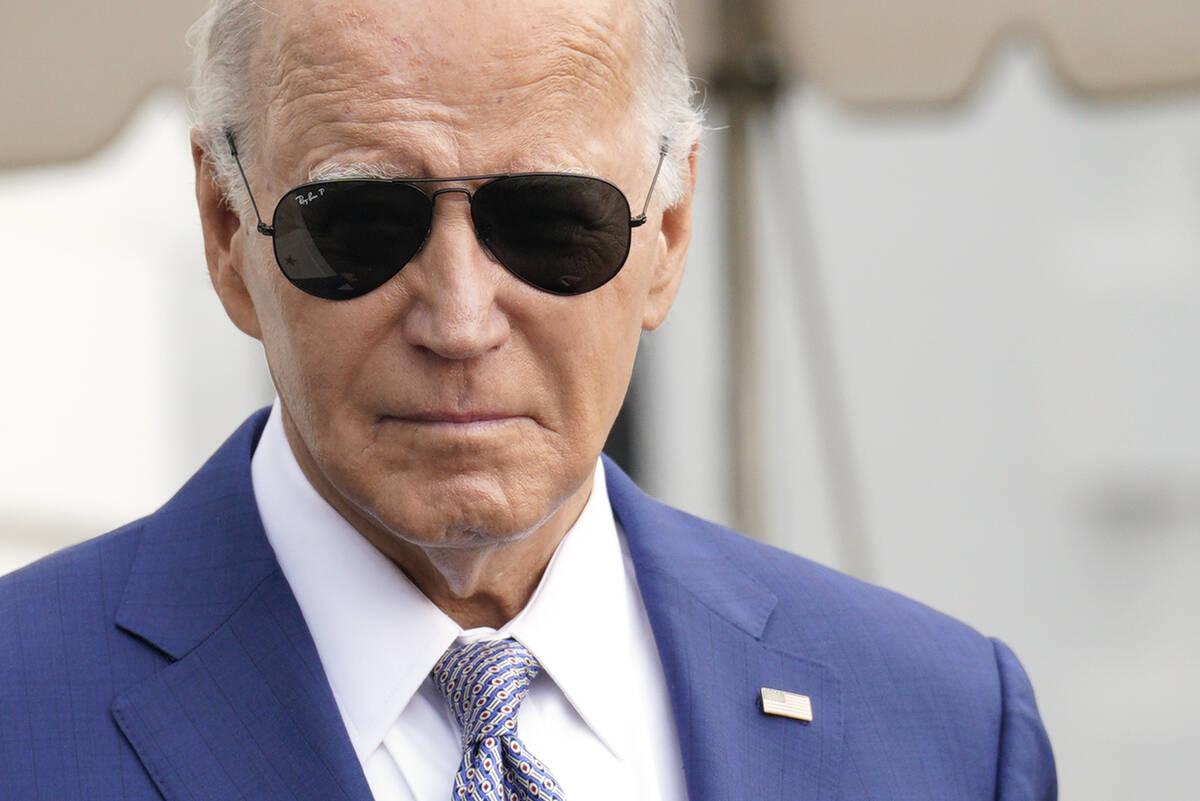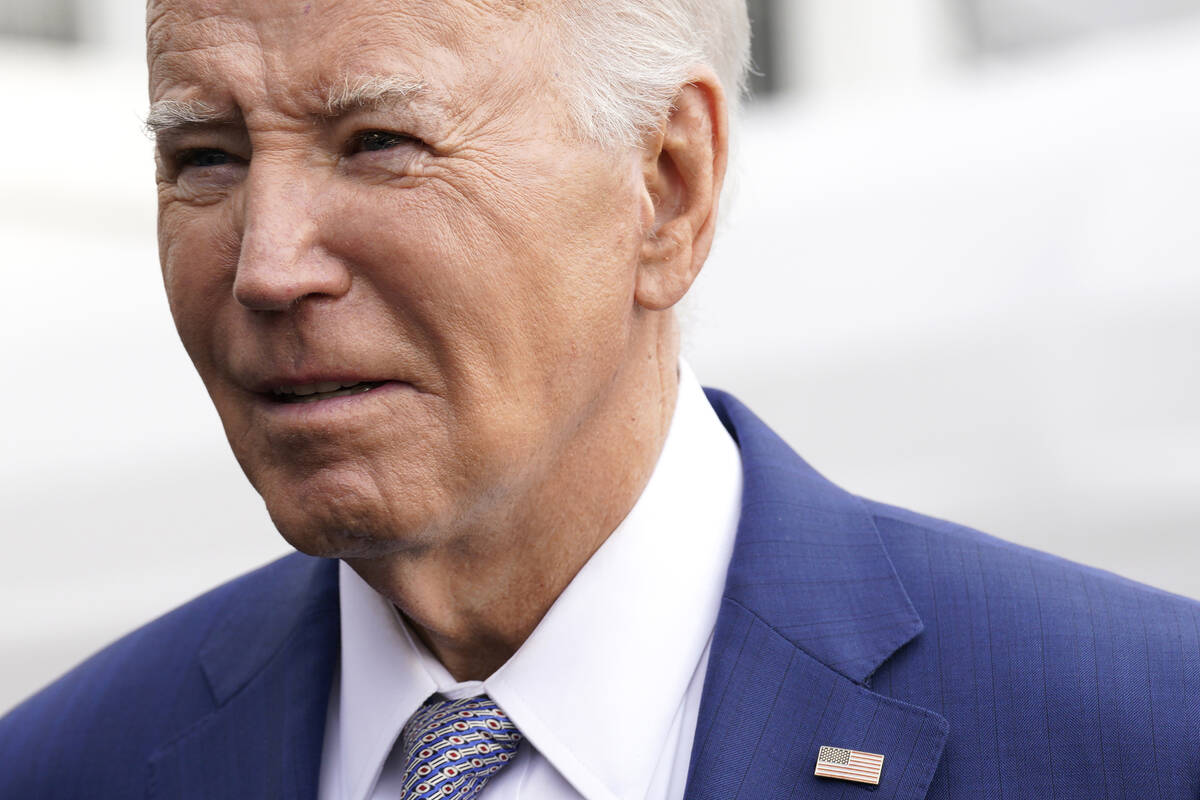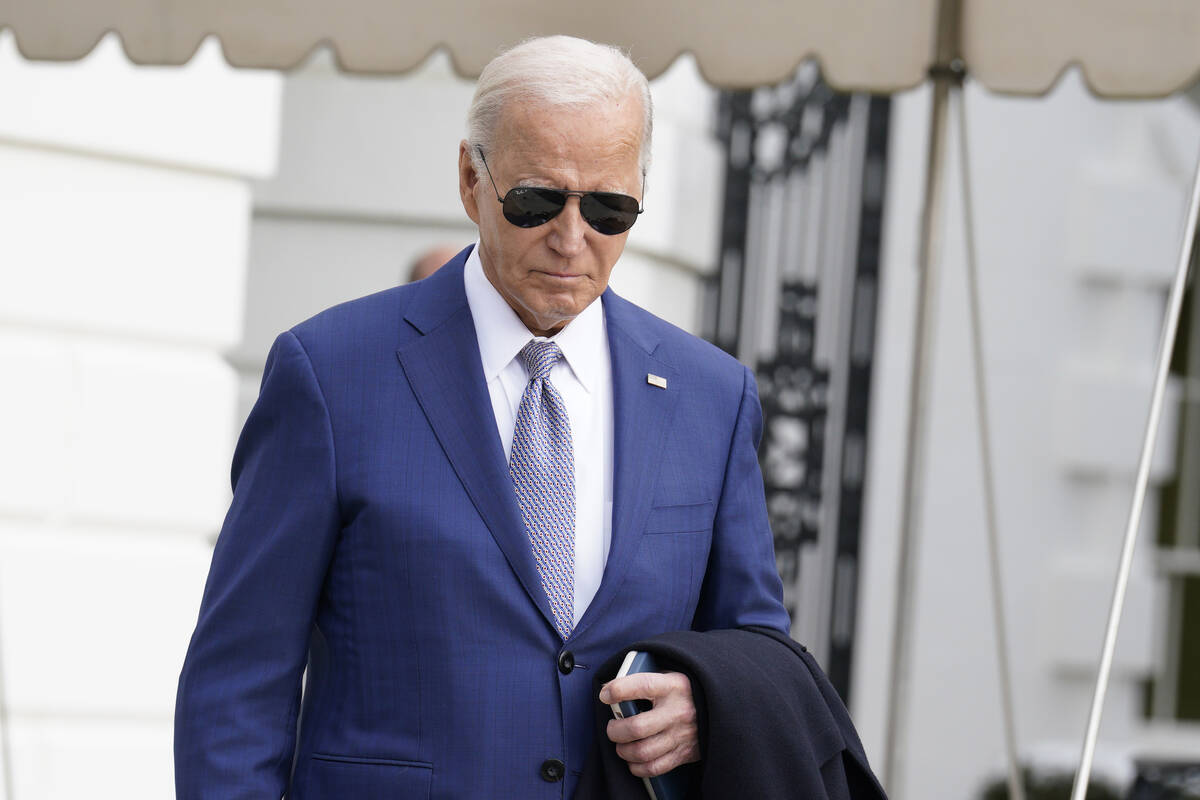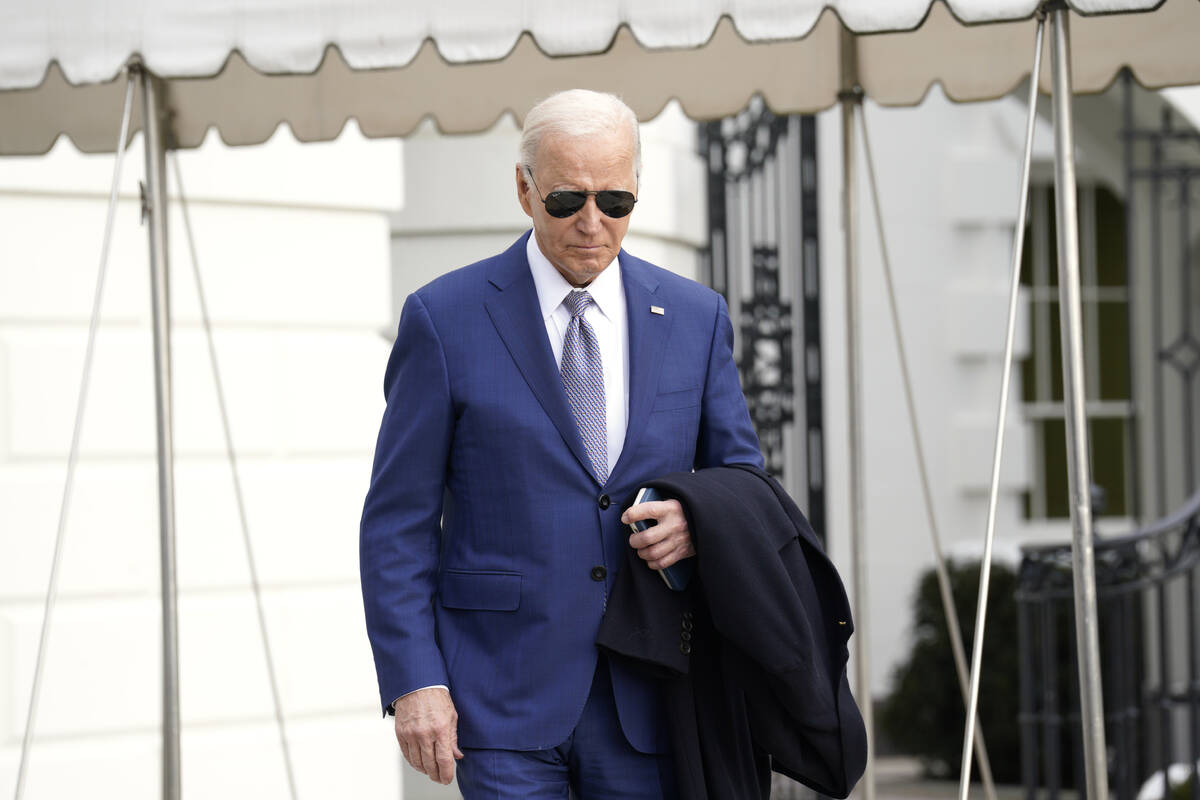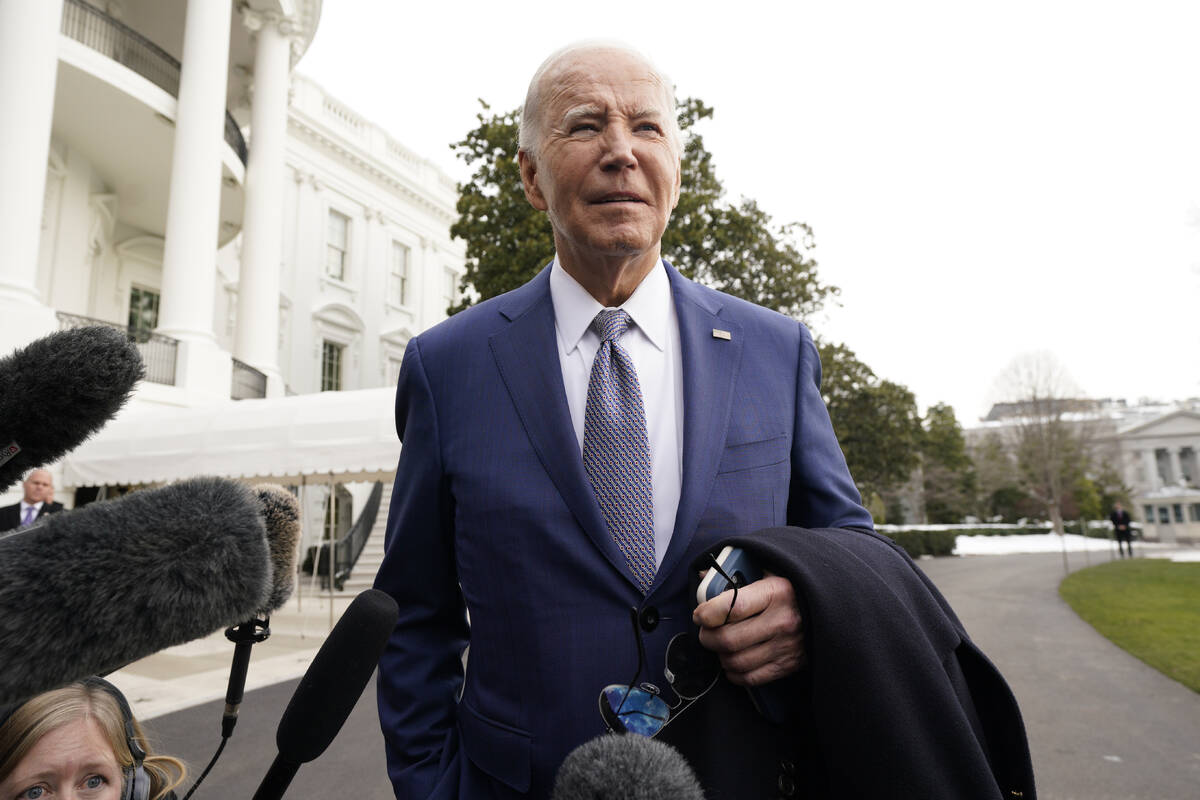U.S. forces strike Houthi sites in Yemen
WASHINGTON — U.S. forces on Thursday conducted a fifth strike against Iranian-backed Houthi rebel military sites in Yemen as President Joe Biden acknowledged that the American and British bombardment had yet to stop the terrorists’ attacks on vessels in the Red Sea that have disrupted global shipping.
The latest strikes destroyed two Houthi anti-ship missiles that “were aimed into the southern Red Sea and prepared to launch,” U.S. Central Command said in a statement posted to X, formerly known as Twitter. They were conducted by Navy F/A-18 fighter aircraft, the Pentagon said.
Biden said the U.S. would continue the strikes, even though so far they have not stopped the Houthis from continuing to harass commercial and military vessels.
“When you say working, are they stopping the Houthis, no. Are they going to continue, yes,” Biden said in an exchange with reporters before departing the White House for a domestic policy speech in North Carolina.
Hours after Biden spoke, Houthi Brig. Gen. Yahya Saree said in a prerecorded statement that its forces had carried out another missile attack against the Marshall Islands-flagged, U.S.-owned cargo ship Chem Ranger. Saree said the attack took place in the Gulf of Aden, the waters just south of Yemen.
Earlier Thursday evening, the British military warned of a new attack on shipping some 100 miles off the coast of Yemen, also in the Gulf of Aden. The Pentagon was not immediately able to confirm the strikes but has cautioned that it anticipates the Houthis will continue their attacks.
The continued harassment of the ships has driven the U.S. and international partners to take extraordinary steps to defend them through a joint mission named Operation Prosperity Guardian, in which the consortium is trying to create a protective umbrella for the vessels by intercepting any missiles or drones that target them.
It has also led the U.S. and British militaries to take measures to knock out missile sites, radars and air defense systems to try to tamp down the Houthis’ ability to attack.
On Wednesday, the U.S. military fired another wave of ship- and submarine-launch missile strikes against 14 Houthi-controlled sites. That same day, the administration put the Houthis back on its list of specially designated global terrorists. The sanctions that come with the formal designation are meant to sever violent extremist groups from their sources of financing, while also allowing vital humanitarian aid to continue flowing to impoverished Yemenis.
“These strikes will continue for as long as they need to continue,” National Security Council spokesman John Kirby said Thursday, adding, “I’m not going to telegraph punches one way or another.”
Despite sanctions and military strikes, including a large-scale operation carried out Friday by U.S. and British warships and warplanes that hit more than 60 targets across Yemen, the Houthis keep harassing commercial and military ships. The U.S. has strongly warned Iran to cease providing weapons to the Houthis.
“We never said the Houthis would immediately stop,” the Pentagon’s deputy press secretary, Sabrina Singh, said at a briefing, when asked why the strikes have not seemed to stop the Houthis. Since the joint U.S. and British operation got underway last Friday, hitting 28 locations and struck more than 60 targets in that initial round, the Houthis’ attacks have been “lower scale,” Singh said.
For months, the Houthis have claimed attacks on ships in the Red Sea that they say are either linked to Israel or heading to Israeli ports. They say their attacks aim to end the Israeli air-and-ground offensive in the Gaza Strip that was triggered by the Palestinian terrorist group Hamas’ Oct. 7 attack in southern Israel. But the links to the ships targeted in the rebel assaults have grown more tenuous as the attacks continue.
The attacks have also raised questions as to whether the conflict between Israel and Hamas has already expanded into a wider regional war.
“We don’t seek war, we don’t think we are at war. We don’t want to see a regional war,” Singh said.
———
Associated Press writers Jon Gambrell in Jerusalem, Jack Jeffrey in London, and Lolita C. Baldor and Sagar Meghani in Washington contributed to this report.



